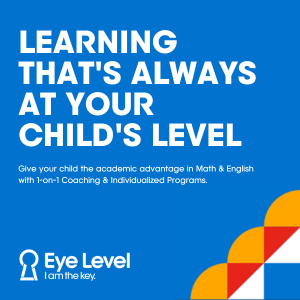Written by Choo Li-Hsian.

Photo Credit: iStock
With Chinese New Year just around the corner, I find myself thinking a lot about the significance of traditions for families. I think traditions tend to take on a new and different meaning when you have a child in your life, as suddenly you have someone to carry on the legacy that you would like to leave behind.
The Commercialization of Culture

Photo Credit: iStock
For children these days though, as a friend pointed out, traditions tend to be tied less to their true cultural meanings and religious roots, and more to commercial concerns due to the power of product advertising. Chinese New Year revolves around big reunion meals, merchandising surrounding the related zodiac animal and ang pow money. Hari Raya focuses on Buka Puasa feasts. Deepavali is linked to fancy Indian inspired garments and gold. Christmas is all about large Christmas tree displays and presents. Even a religious celebration like Easter is affected, as it is now mostly associated with the Easter Bunny and chocolate eggs.

Due to the lack of exposure and real experiences as well as good storybooks with Asian and other non-Western content, many local children are also, unfortunately, more familiar with Western traditions and culture. Ask any child here, and they could probably tell you more about Halloween than about our own Hungry Ghost Festival. Children in Malaysia, Asia and the developing world certainly need more cultural role models and references that they are familiar with and can relate to. They need frequent reminders of the rich living culture that exists in our midst, to ensure that our unique collective Asian heritage remains in circulation and is not forgotten by future generations
Continuing Traditions from Our Own Childhood

Photo Credit: iStock
Having children has helped to bring back some of the excitement I used to feel as a child during festive periods. Now that my sisters and I are all married, have our own families and live in different places, the Chinese New Year Reunion Dinner at our parents’ home in Johor Bahru has become more meaningful. It is actually rather comforting to have this tradition to look forward to annually. As one of my friends said, it’s like pressing a pause button, so that we can take a break from our fast-paced lives to be all together at the same place at the same time, to properly enjoy each other’s company and feast on good food as a family.

These days, our reunion dinners are smaller and more intimate, only with our immediate family. When my paternal grandparents were alive, Reunion Dinners used to be very large family affairs. There would be many tables set up at my grandparents’ spacious back porch. Most of the food would be home cooked as a joint effort. All our grand–uncles, grand–aunts, uncles, aunts and cousins not only from Malaysia but also abroad would make time to attend this dinner. I have many great memories of these dinners – looking out of the old-fashioned wooden louvre windows of my grandparents’ house waiting to see who would arrive next, observing the many shoes and slippers strewn haphazardly around the front door, playing traditional games with all our cousins, listening to the adults tell stories about old family memories.
Research Shows that Traditions are Good for Children’s Healthy Development

Photo Credit: iStock
I’ve always had a vague inkling that traditions are good for children’s healthy development beyond the usual argument of passing on our cultural values but was never sure exactly why I felt that way. I did some online research and discovered interesting evidence that suggests that traditions do in fact help to make our families happier and healthier.
Researchers have apparently studied the role of traditions and rituals in family life since the 1950s. The traditions studied have to do not only with festive holidays but with any routine or set of behaviors that has a symbolic meaning for a family or larger community such as family reunions, birthdays, special family nights or weekly Sunday lunches.
Research by certain psychologists consistently link these kinds of family practices with higher academic success, happiness, and emotional wellbeing for the family as a whole. For example, parents of preschoolers who show a stable commitment to rituals over a five-year period have children who score higher on tests of academic achievement, and mothers of preschoolers who feel that their families have meaningful rituals report higher marital satisfaction overall.
Whether they are listening to bedtime stories every night, going to their grandparents’ home for lunch every Sunday or helping to bake cookies to celebrate Chinese New Year every year, young children are very aware of the daily, weekly, and annual rhythms of family life and as they grow, are eager to participate as active players. Rituals and traditions are really powerful as they provide regularity and a sense of order that help children to feel safe. When children feel secure, their anxiety goes down and they can focus energy instead on learning and growing. When children know what to expect, it guides their behavior and helps them make sense of the world.
Festive Traditions Anchor Family Members and Help Children Appreciate Diversity

Photo Credit: iStock
Traditions practiced during festive celebrations help us bond with those we love and anchor family members to each other. Studies show that traditions give children a strong feeling of belonging and sense of identity, as they tell children a story about who they are and what is important to the family. This feeling of being part of something unique and extraordinary can boost a child’s overall emotional wellbeing. Smaller nuclear families join with larger extended families, and the present forms a bridge with the past through traditions. Storytelling and reminiscing about the past with family members create and strengthen positive memories for children over time. One psychologist, Marshall Duke, discovered that children who have intimate knowledge of their family’s history are typically more well-adjusted and confident than children who don’t. They have higher levels of self-esteem, fewer behavioral problems, and better family functioning.
The beauty of international schools is that their population also tends to be more diverse in terms of the ethnicity, culture, religion, and geographical background of students and staff. So children in these schools have more opportunities to learn first-hand about festivals and festive traditions from their friends as well as from classroom activities and school-wide celebrations. International schools also provide opportunities for children to learn different languages which can often provide an insightful window into another culture and region. These rich opportunities help children to develop an important quality called “international mindedness”. As international educator Carolyn Savage pointed out in her blog entry featured in the Huffington Post, “Our children are growing up in an increasingly interconnected world, where overseas travel, expat life and multinational businesses are the norm.” So, it is best to prepare them from an early age to give them an advantage when they enter the future workforce.
Parents Responsibility as Children’s First Cultural Role Models
As parents, we are the guardians of family traditions and our children’s first cultural role models. Yet, if you are a parent like me, a half-cooked Chinese who is not so well versed with my own cultural traditions, you may find yourself bumbling through some of these experiences. I think that’s part of the fun though. We should look at it as a shared intergenerational experience where we can learn and grow alongside our children. In the end, having meaningful shared experiences with our little ones where we can model a sense of wonder and cultural appreciation is much more valuable than knowing all the answers. I will definitely be looking for ways to inject more tradition into our daily lives, to introduce brand new family traditions that celebrate our family values and serve as touchstones for my children to return to year after year, even when they are all grown up. What about you?













![[elc International School] NO SHORTCUTS: WHY THINKING STILL MATTERS](https://mint-edm.sgp1.digitaloceanspaces.com/production/XTvbqZxxQQxUHjyDcClxCortA5SxNs.png)




















